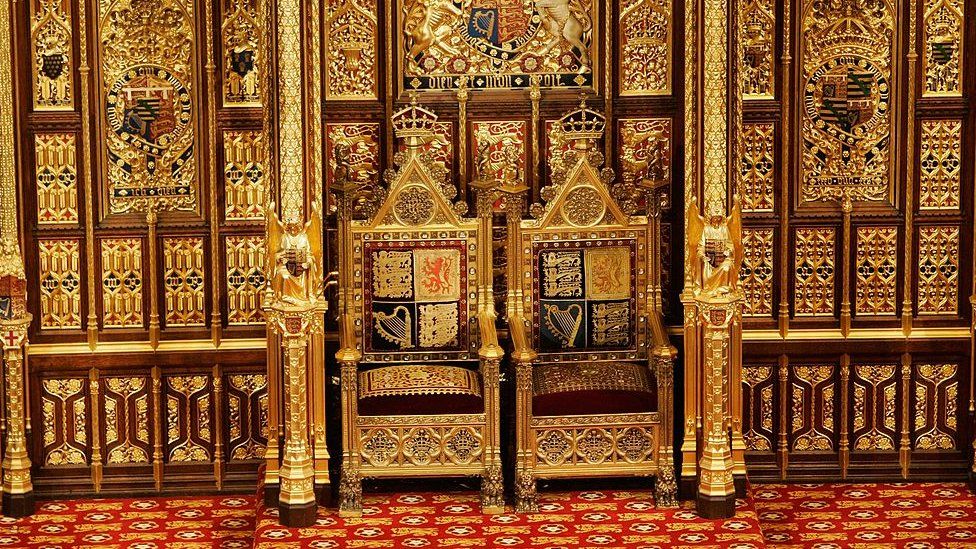ARTICLE AD BOX
 Image source, Getty Images
Image source, Getty Images
By Kate Whannel
Political reporter in Manchester
"Let's get rid of the House of Lords and replace it with a group of randomly selected members of the public."
That was one suggestion put forward at a Conservative party conference discussion on how to improve the House of Lords.
"Is it such a preposterous idea?" the questioner asked, as some in the audience chuckled.
He pointed out that a similar system is used to pick juries in court cases.
He also said the method had been used - sometimes successfully - in other countries to tackle political problems.
In Ireland, 99 men and women were selected at random to make a recommendation on the issue of abortion.
In France, 170 citizens were brought together to consider the laws on assisted suicide.
Citizens' Assemblies have also been used to come up with solutions for tackling climate change.
Could that type of governance be expanded and replace the House of Lords?
In the future, could you get a text from the government telling you that this year it is your turn to govern the country?
The panel assembled to debate the issue at Tory conference - put together by the Conservative Action for Electoral Reform group - and the audience were in agreement that some things about the House of Lords need to change.
Perhaps a name change would help, suggested one audience member. "House of Commons-lite," was the proposal from Tory MP Chris Clarkson.
There were suggestions of a cap on numbers, amid fears that the size of the House of Lords could soon swell to an eye-popping 1,000 members.
However, the panel wasn't sure some kind of postcode lottery legislature as proposed by the questioner was the fix they were looking for.
Mr Clarkson described it as a "brave" thought, while pollster Joe Twyman said it was "a very good and very noble" idea in principle but in his experience "unworkable".
"The problem with civil assemblies," he said, "is they need to be representative.
"They may be representative in terms of age, maybe gender but are they representative in terms of what you actually need, representative in terms of experience, representative in terms of thought."
And, he added: "We have to ask ourselves do we want to necessarily involve in the electoral process the 3% of the British population who believe the Earth is flat?
"Or the 3% of the population that believe Fernando is Abba's greatest song?"

 1 year ago
18
1 year ago
18








 English (US)
English (US)